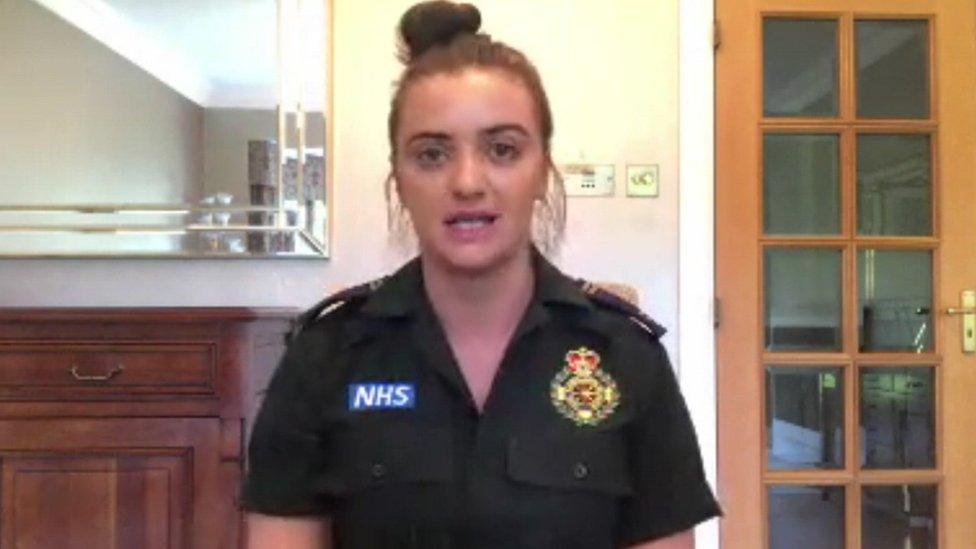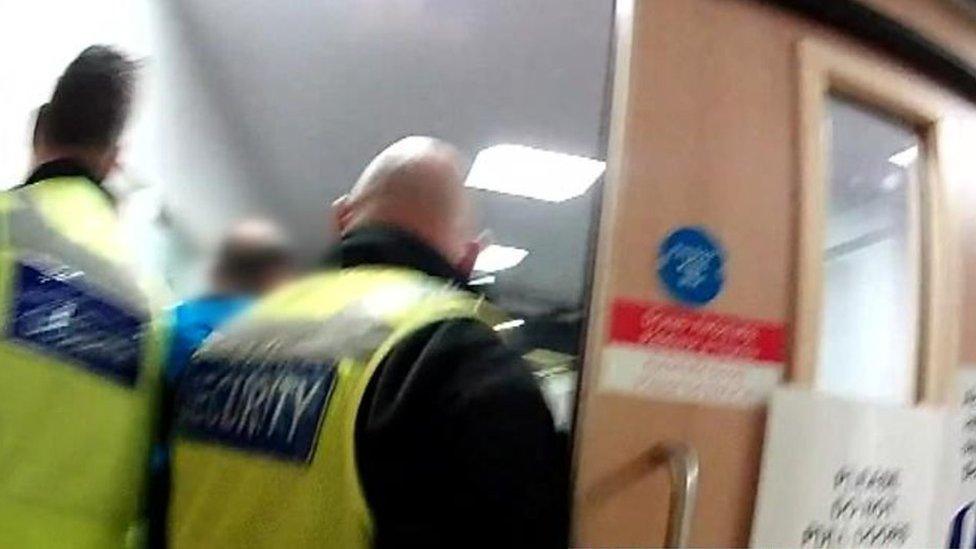Tougher sentences for attacks on emergency workers considered
- Published

Plans to double the maximum jail term for criminals who assault emergency workers to two years are being considered by the government.
Just two years ago, a previous law change doubled the maximum term from six months to 12 in England and Wales.
Ministers have launched a consultation on the issue.
Home Secretary Priti Patel said this sent a "clear and simple message" that "vile thugs" would not get away with such "appalling behaviour".
"Our police officers, firefighters and other emergency workers go above and beyond every single day - running towards danger to protect us all," she said.
"They are our frontline heroes who put their lives on the line every single day to keep us safe, and yet some despicable individuals still think it's acceptable to attack, cough or spit at these courageous public servants."

Lizzie's story: Assaulted in ambulance

"We were working one night shift and got called to a man who'd been assaulted. He just had kind of minor facial cuts," paramedic Lizzie Smith told BBC Breakfast.
"So we got him to the back of the ambulance and I was just carrying out some standard checks on him, blood pressure, heart rate, things like that.
"I sort of noticed him giving me prolonged periods of eye contact which was making me feel quite uncomfortable but didn't think too much of it.
"I then reached over to pop something in our bin of the ambulance, which was when he grabbed my bum.
"I would say it's an extremely common occurrence within the ambulance service. My experience personally is relatively minor but it's common, I'd say once or twice a week at least something verbal and then other colleagues have had worse."

More than 11,000 people were prosecuted for assaulting an emergency worker in 2019, according to the Ministry of Justice.
A quarter of those found guilty received a suspended sentence or immediate custody.
Justice Secretary Robert Buckland told BBC Breakfast: "Stories of many front-line workers, particularly during this time of Covid, have really hit home not just with us but with the public as well and the vital importance of doing everything we can to safeguard our frontline emergency workers.
"Everything that needs to be done should be done, hence today's announcement."
The Assaults on Emergency Workers (Offences) Bill, which increased maximum sentences to 12 months, came into force in 2018.
Firefighters, police officers, prison officers and NHS staff are among those covered by the law.
Assaults include being pushed, shoved or spat at, but prosecutions can take place under more serious offences when an emergency worker is seriously injured.
The law change in 2018 also means that when a person is convicted of offences including sexual assault or manslaughter, the judge must consider tougher sentences if the victim is an emergency worker.
Last year, Labour MP Holly Lynch, who campaigned for the change alongside fellow Labour MP Chris Bryant, warned the new law was not proving enough of a deterrent.
Ms Lynch said she welcomed the consultation but said it was "frustrating" she and Mr Bryant had wanted to increase the maximum sentence to two years in 2018 but the Conservative government instead set the maximum at 12 months.
The Conservatives pledged in their 2019 election manifesto to consult on doubling the maximum sentence again.
- Published18 July 2019

- Published13 September 2018

- Published29 June 2018
